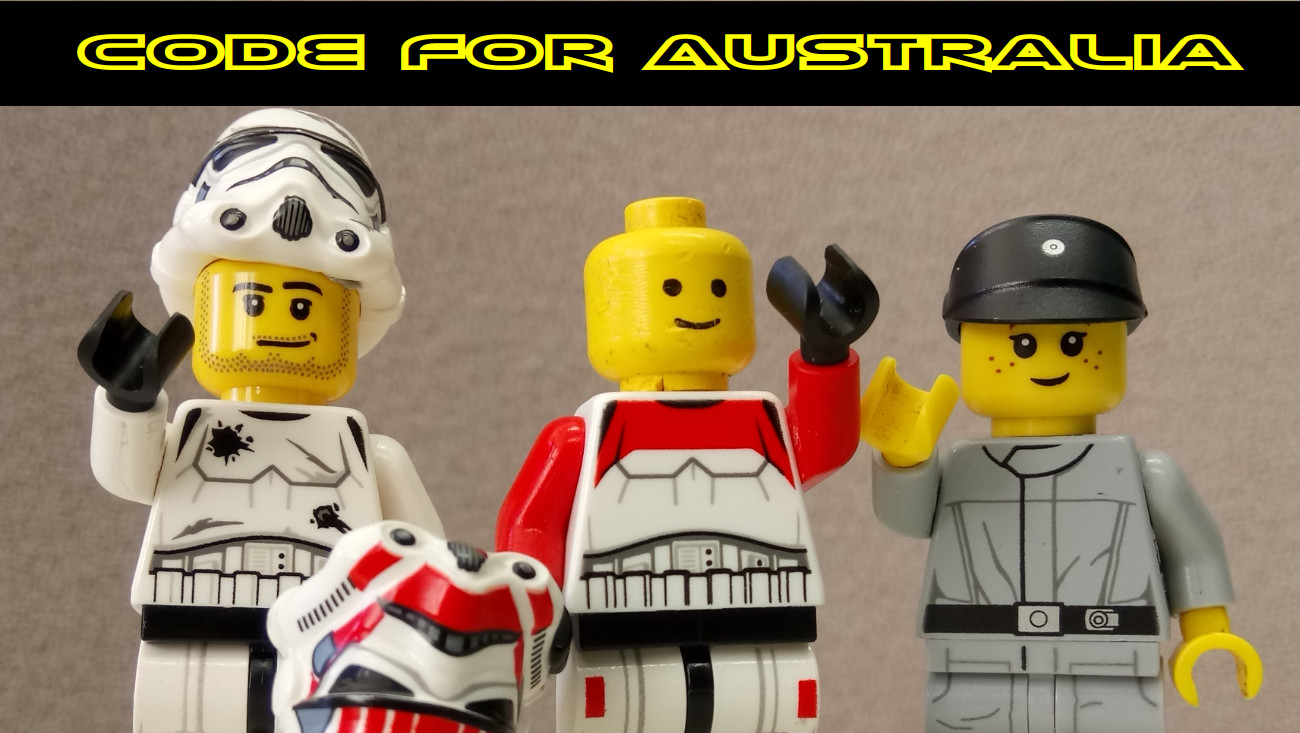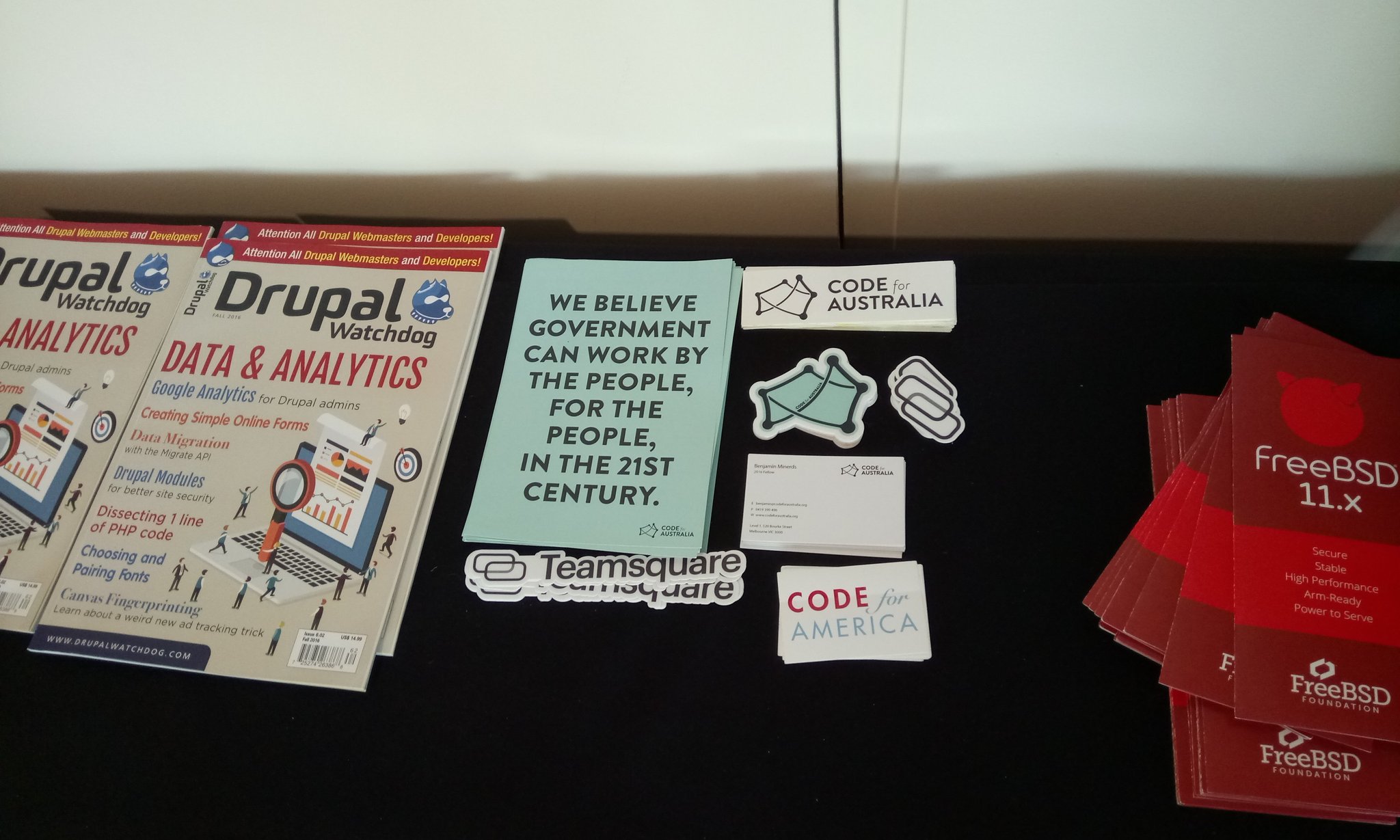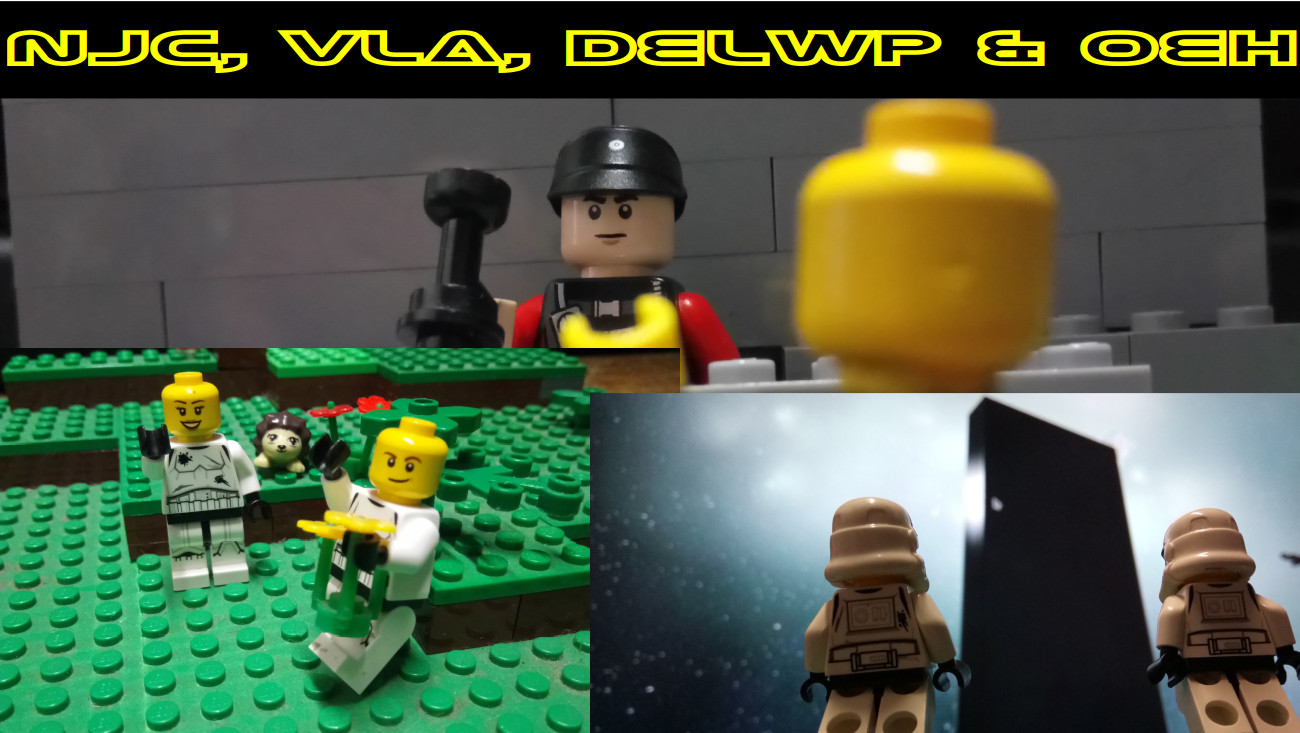CfA at Linux Conf Au 2017
23/01/2017
Image from “Planning Alerts, State Contracts then The World”

CfA at Linux Conf
Last week a couple of us fellows got to go to Linux Conf Au 2017 and present on the work we’ve been doing with the department over the past six months. Johan Codinha was presenting about the development of the “citizen scientist” in Australia and more specifically the Victorian Biodiversity Atlas project he’s been working on at DELWP and was titled “Interface citizen scientists with government”
My presentation, titled “Planning Alerts, State Contracts then The World”, was about the Planning Alerts by Open Australia and how this influenced and inspired our project at the Department of Treasury and Finance
CfA stickers and flyers nestled in between FreeBSD and Drupal

Open Knowledge Miniconf
The Johan and myself were speakers in the Open Knowledge miniconf and ended up bracketing the event with Johan as the first speaker and myself as the last
After Johan was Steven Ellis with a talk titled “Almost Open - Just close the door behind you” where he discussed the changing dynamic of cultural forces exerted by the FOSS community on government and business. He encouraged us to try to get the government to simply acknowledge that they depend on and derive huge value from open source software already. For some reason governments seem unable to see (or publicly acknowledge) the benefits they already reap from open source in an eerily similar way that businesses were doing in the nineties and naughties. Steven also suggesting the financial benefits of FOSS to government such as the reduced maintenance costs by sharing the burden of support, negotiaion freedoms available due to a lack of vendor lock in and the benefits of a flourishing ecosystem feed by timely and effective access to data (read APIs). These benefits seem so obvious to those of us from the FOSS community that we forget that this might not be so obvious to a public servant for whom these are all new concepts
There was then an interesting talk by Gavin Tapp on “How govCMS is part of the open government and open data movement in Government”. I was glad he included a brief outline of the lifespan of the Gov 2.0 taskforce that crystallised my understanding of how this initiative fits in with a lot of what we are doing. He mentioned an interesting report comparing different CMS solutions performed by the federal treasury when considering GovCMS which I’m looking forward to browsing over sometime in the coming week. One thing he pointed out that was quite poingiant to me was that they did their best to discourage departments from requiring registration before accessing the data, unlike our project which now has all the information locked up tight… this is the opposite of open and transparent and does not set a good example for others to follow
After lunch Steven Pousty presented “Building My Own Little World with Open Data” where he discussed a data mapping and visualisation project comparing bird sightings and other environmental factors such as temperatures, seasons and tide levels. The CfA DELWP project even got a shout out for having similar data sets and interests in the common-boring-case being the most pertinent
Cat Allman from Google then discussed “Open Meets Science @ Google” where she discussed Googles involvement in open source scientific tools and what they are doing to promote and educate the next generation of code-scientist hybrids. Software carpentry got a strong mention and is a movement I feel I should look into in Melbourne (and kick start a carpentry school if it’s not already here somewhere)
Then after my talk Pia Waugh engaged us all in an ad lib conversation about the intersection of the FOSS societies and government culture. She encouraged us all to try to bestow the maker-mindset on public servants and open there eyes to techniques and capabilities they never knew they had (but had access to all along)
Day 2 Keynote & Law and Policy Miniconf
Tuesday was the Law and Policy miniconf and almost felt like a continuation of the Open Knowledge miniconf with most of the same faces and many related topics of interest. We also kicked off the day with a keynote by Pia Waugh titled “Choose Your Own Adventure, Please!”. An important concept she covered was that the liberty we experience is dependant on the tools we can use, this is the “sufficiency” part of “free software being a necessary but not sufficient condition for liberty”. For example I’m “free” to build a house and (to a limited extent) I’m “free” to extend and modify my home… but in reality I’m not competent in the skills that would enable me to exercise those freedoms (carpentry, painting and so on). In the same way all the open source software in the world won’t help government servants if they are digitally illiterate and unable to capitalise the benefits
The miniconf kicked off with a “fishbowl discussion” on GPL Compliance. This fishbowl format was a new experience for me, the discussion began with five chairs at the front of the room and four audience members take four of the five chairs with the last one being left empty. These four kick off the discussion and any remaining audience members left with a question or comment can jump up and sit in the fifth chair, then one of the current people up the front have to concede their seat so that there is always a free chair for someone to take. This worked quite well because were were all a bunch of fussy, curious pushy para-legal-pedantic-nerds, but I fear it would suffer from the effect of amplifying already loud voices in some groups with more nominal cultures
Bradley Kuhn gave a presentation titled “Beautiful Build: Releasing Linux Source Correctly” talking about his experiences encouraging GPL compliance and the finer definition of some simple terms such as “reasonably skilled”, “complete and corresponding source” and (I’m serious here) “the”
Adam Poultons talk “Decentralisation - Removing the Middle Man from Current Centralised Systems” touched on a few topics including the (surprisingly strong) relation between blockchain technology and stone currencies, how Twitter and Facebook are becoming our de-facto decentralised news sources and he also mentioned and explained the Flux party which has recently arisen in Australia
I’m a big fan of Paul Foxworthy from seeing his visualizations of voter preferences in Australian elections. That aside, his talk titled “Pushing on a Piece of String - OSIAs adventures in influencing governments” felt like he’d stolen the material from my inner most secret journal… except I don’t work for OSIA. During the talk he mentions that they had surveyed the ERPs being used by government and realised that over 200 unique and incompatible ERPs were being individually purchased when the government could use this extraordinary buying power to bargain for a better deal or at least compatible systems. Paul also stressed the immense savings that could be made by a government by embracing open machine readable standard formats and open source software to reduce costs of inevitable migrations and maintenance of information systems
Pia Waugh then gave a talk on “the relationship between openness and democracy” discussing the importance of openness and transparency as a prerequisite for democracy. “Democracy without openness always moves away from democracy”, Pia warns us and encourages us to remember that all the positive aspects of democracy are lost if we end up with a closed and opaque democracy… what use is it choosing your leader if you only have a choice of dictators, freedom is not sufficient, but it is necessary (where have I heard that before :p). One other choice moment during this impromptu talk was Pia riffing on people talking about government as a single monolithic monstrous entity, kind of like a Hydra. However those of us with hands on experience working with and for government understand it’s more like a pit of snakes
Then there was a panel on “The Future of Community Efforts to Protect FOSS using Legal Tools” run by Donna Benjamin which was a little less structured but still chock full of interesting tidbits, including the fact that Open Australia got resisted as an official charity by being a “Digital Library”. We also covered some topics related to foundations, not-for-profits and charities and the pressures and forces we need to balance to have successful organisations
The final talk in the Law and Policy miniconf was “A Layperson’s Guide for Talking about Free Software Law” by Rikki Endsley who is an editor for opensource.com. It was an interesting talk from the internationalisation and globalisation perspective but not super relevant to our current predicaments
Other bits and pices
The rest of the conference continued to include material relevant to our work with government but also included talks from a broad spread of possible topics. Michael Cordovers talk on “Future privacy” touched on the importance of anonymization and the lack of importance of actual names in modern identity managment
“Engaging with Open Data through Video Games” by the trio Paris Buttfield-Addison, Jon Manning and Tim Nugent had a few helpful tips on presenting an interesting an exciting hackathon project even if it’s not a game (and the importance of keeping it simple and keeping focused)
“Why haven’t you licensed your project?” by Richard Fontana made me think that a role of “Licencing Zealot” at hackathons might not be as ridiculous as I’d first thought, there was also some food for thought about the post-open-source culture that has emerged over the past few years
Nat Dudley did an interesting (but almost entirely irrelevant) talk on “Ada ❤️ Lace” and the role knitting played in the Belgium resistance movement, and more seriously the role a good community plays in an ecosystem
“Handle Conflict, Like a Boss!” by Deb Nicholson was also in the “mostly irrelevant” basket, but included the hilarious example of conflicted interests in trying to run a “Dog & Boat Wash” business. Someone from the audience pointed out that they had seen a “Dog, Car & Boat Wash”… what a nightmare that would be
And speaking of nightmares, Timothy Terriberry gave a talk on the “Progress in the Alliance for Open Media” discussing the ups and downs of negotiating with vendors of various kinds in establishing an open and shared media codec… and I thought government was a Kafkaesque nightmare :p
If I have any time over the rest of the fellowship I’ll endeavour to cover more of the talks in greater depth and discuss them in relation to our project and CfA in general
Videos from CfA LCA talks
The Network and Audio/Visual crews at LCA are just amazing and have already edited, mixed and mastered the LCA talks so they are available to download right now! This is incredible especially when put into context, remember that LCA is run by a non-profit organisation and run for the most part by volunteers, there are up to six simultaneous events, talks or workshops being run and recorded at any given moment, the events start at 9 in the morning and don’t wrap up until after 5. That’s 48 hours of footage a day, or about 240 hours of footage over the week and it was mostly up on Youtube by the time we all got into work on Monday
They have achieved this by ruthlessly automating where possible, they use flexible systems that allow for simple assumptions and refinement and correcting later, placing great trust upon the volunteers (who have in many cases just learned to use a video capture system), empowering speakers to review and confirm their own work and pre-confirming any details possible prior to crunch time
We could all learn a lot from the LCA A/V team… Thanks for another great year of memories LCA NOC & A/V
Planning Alerts, State Contracts then The World
Interface citizen scientists with government
My impression of what the other teams do

